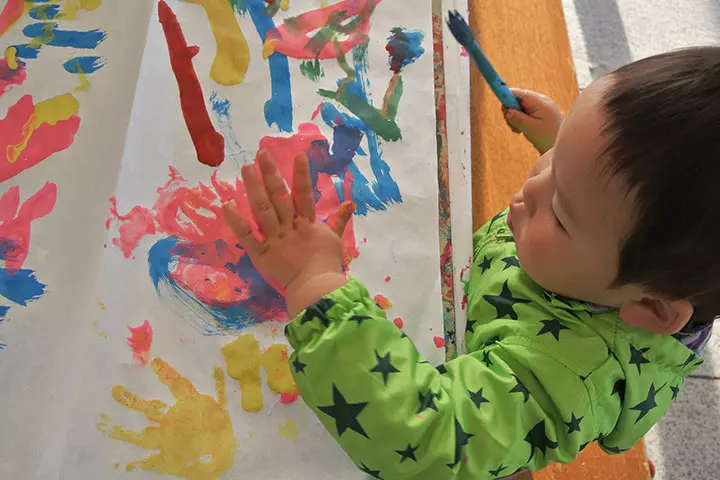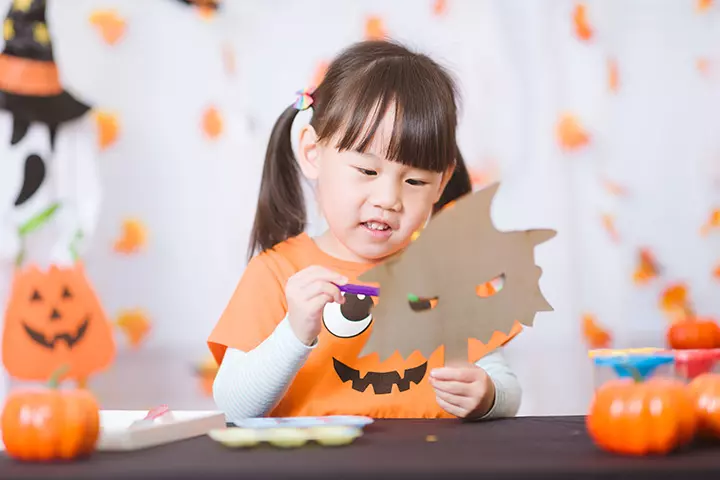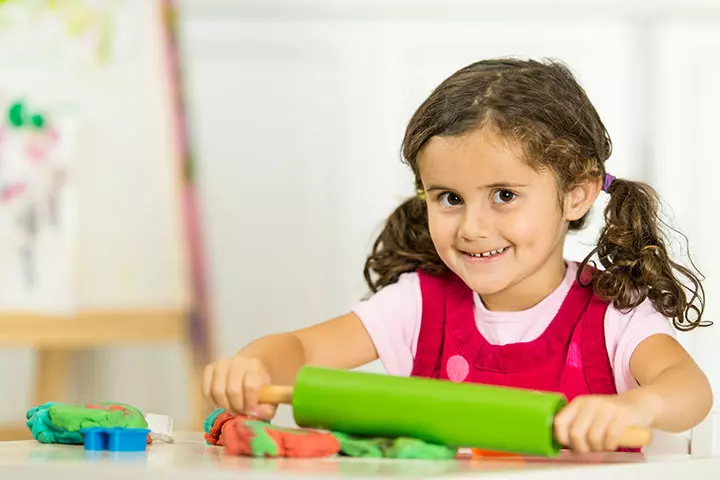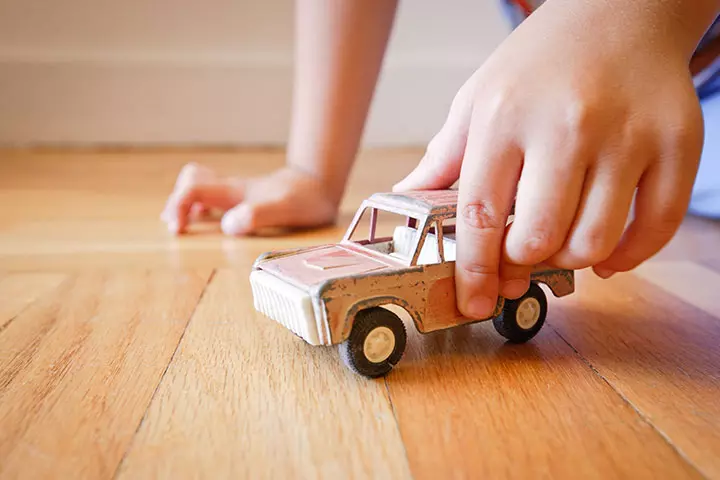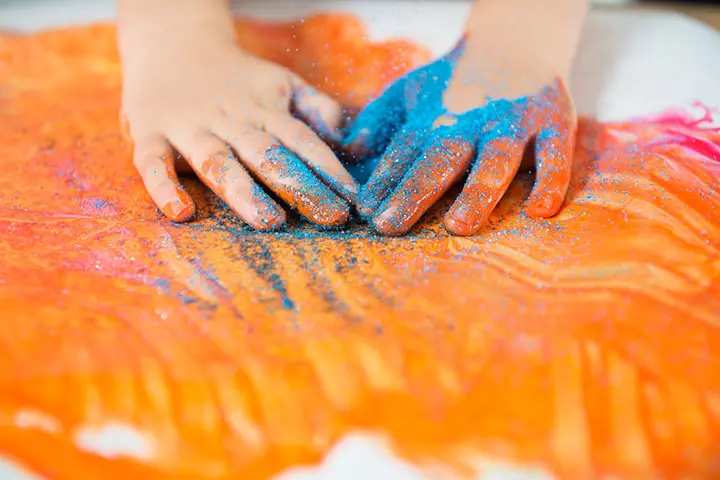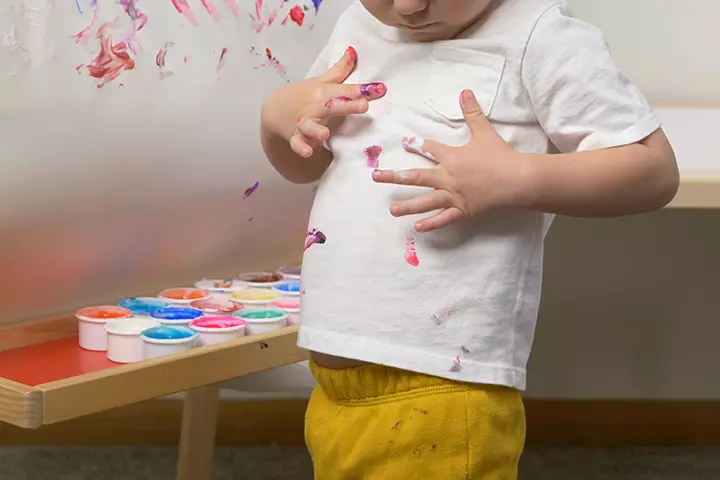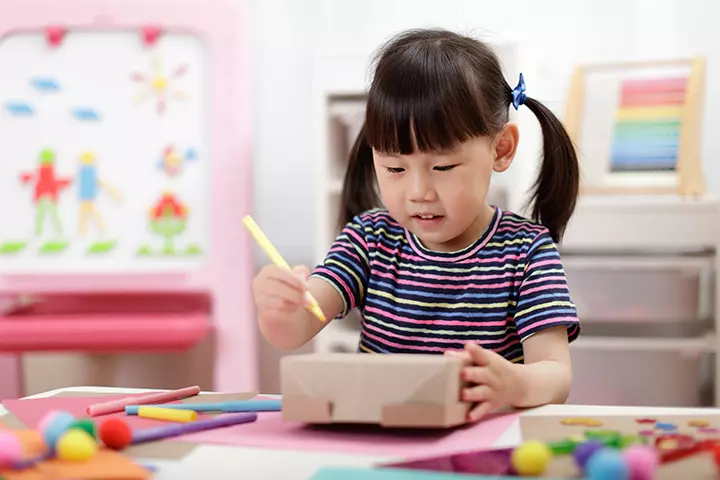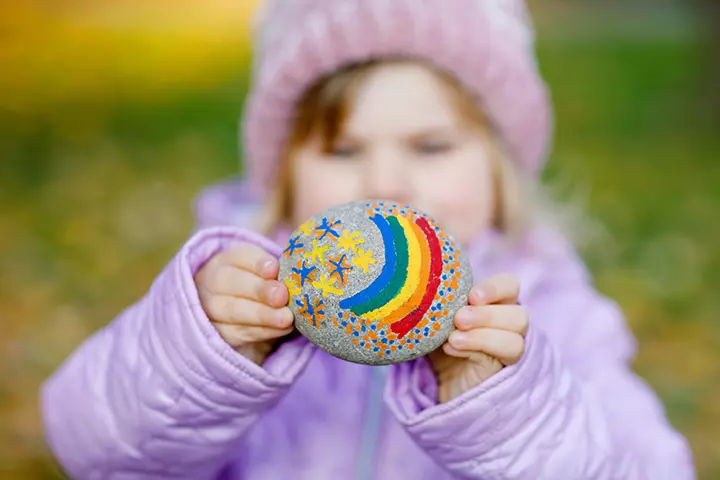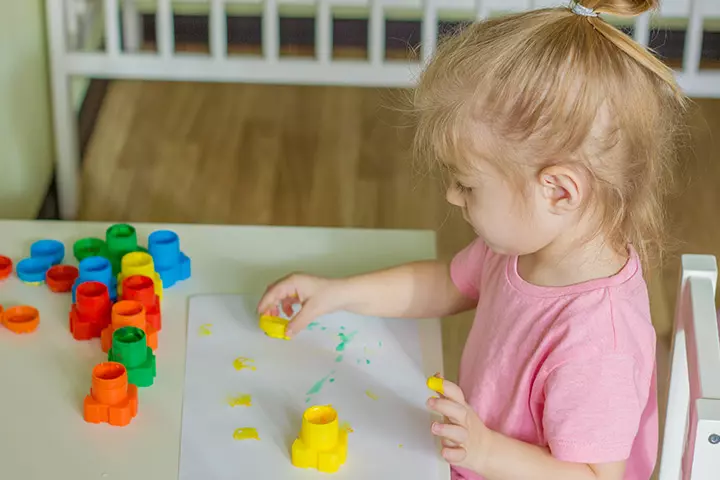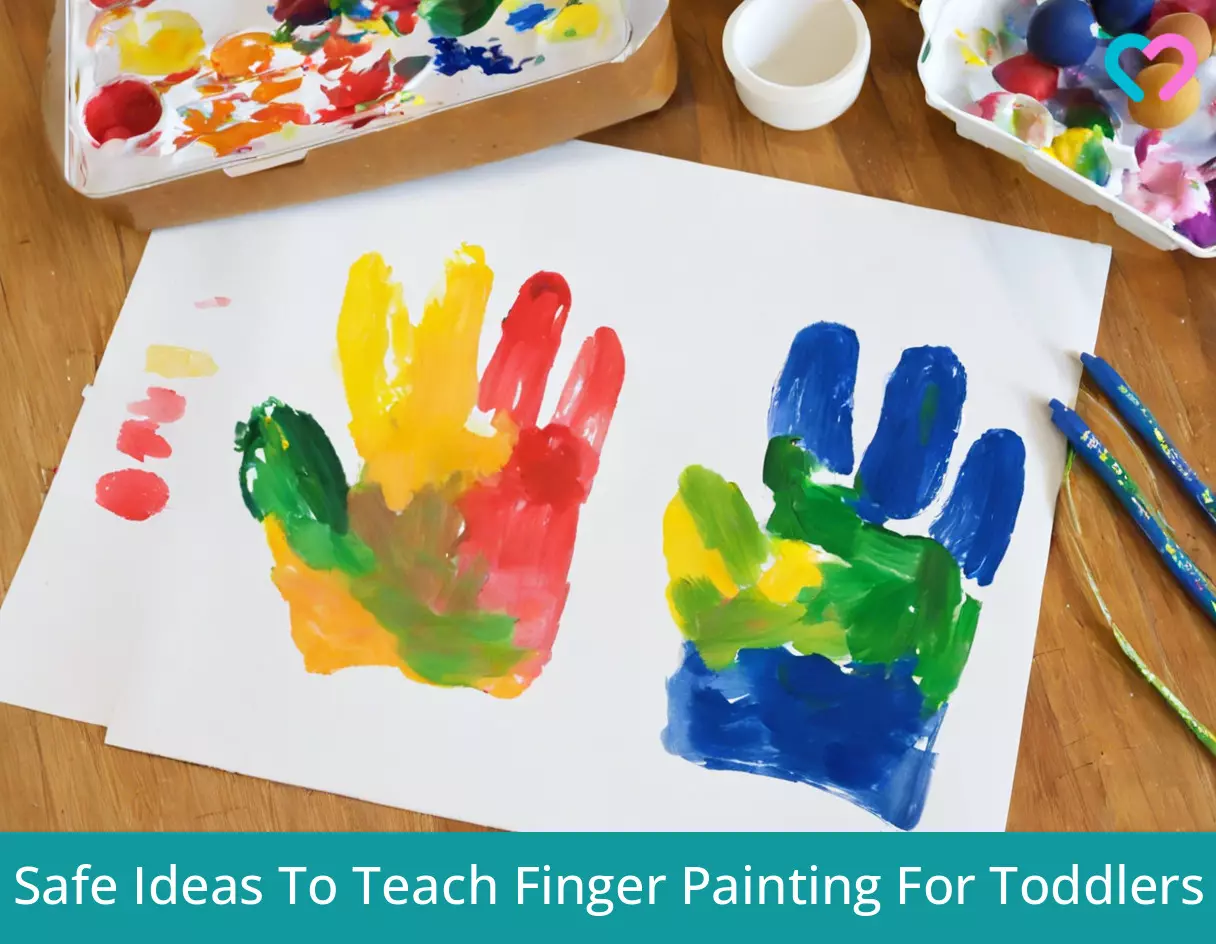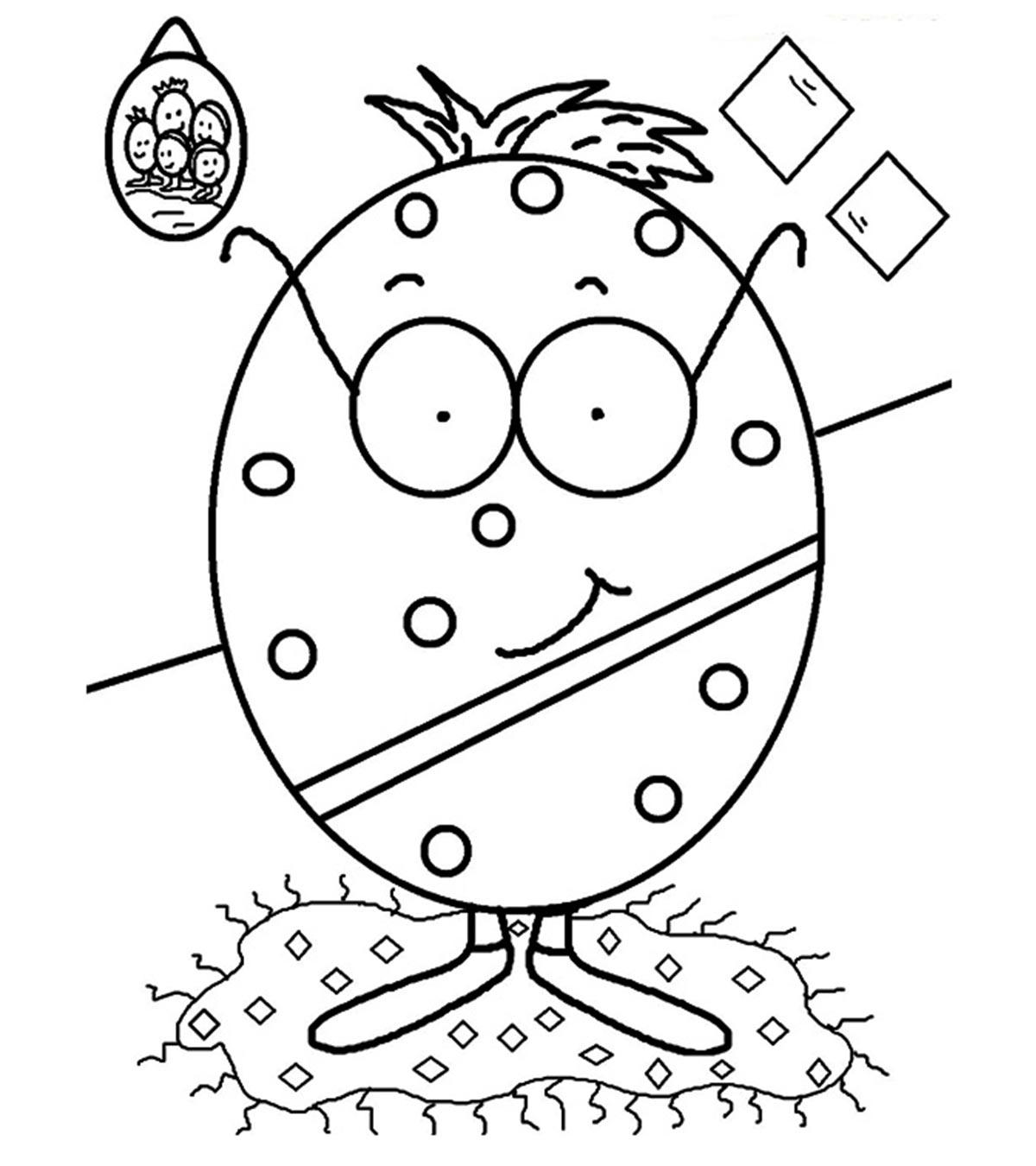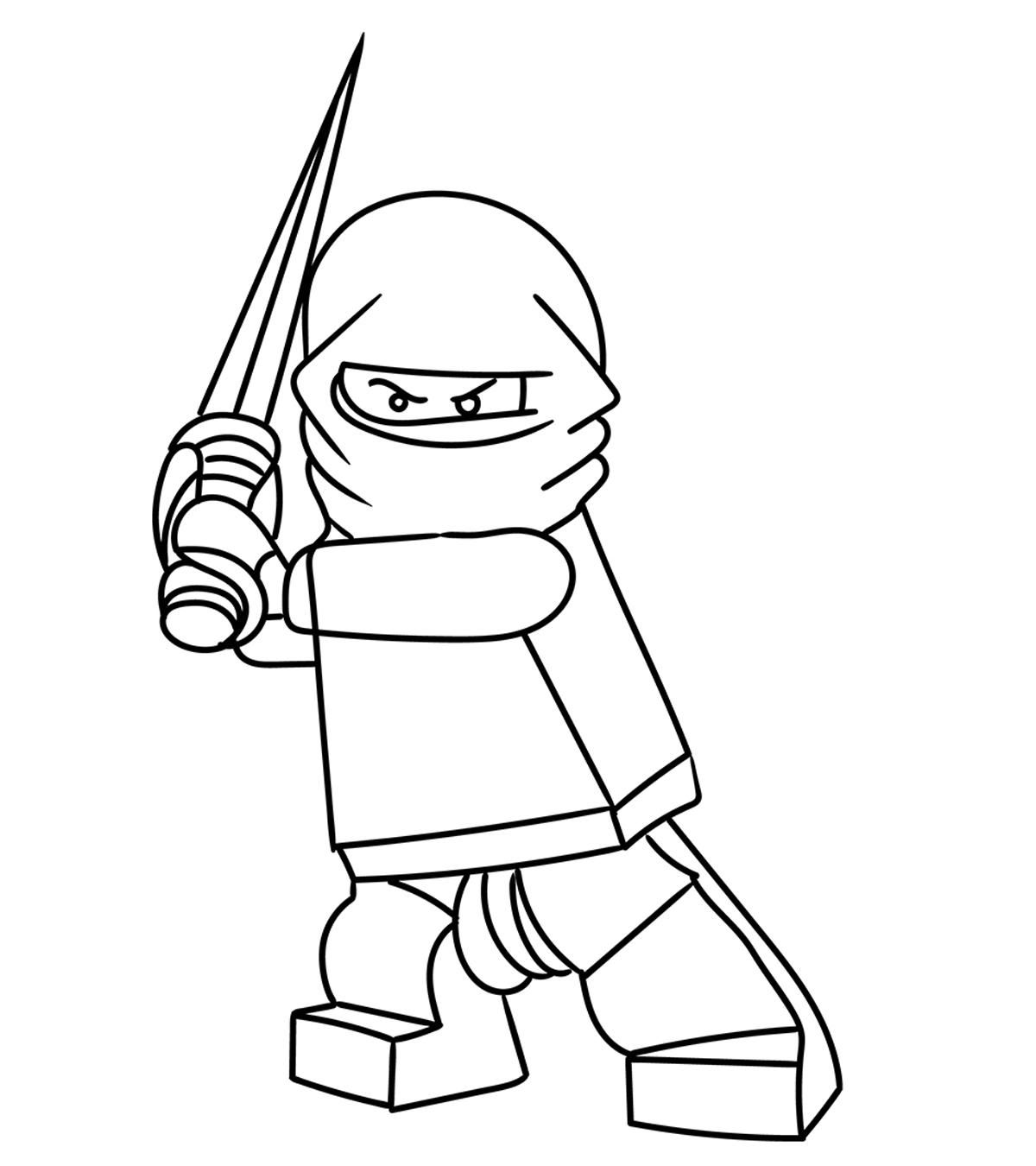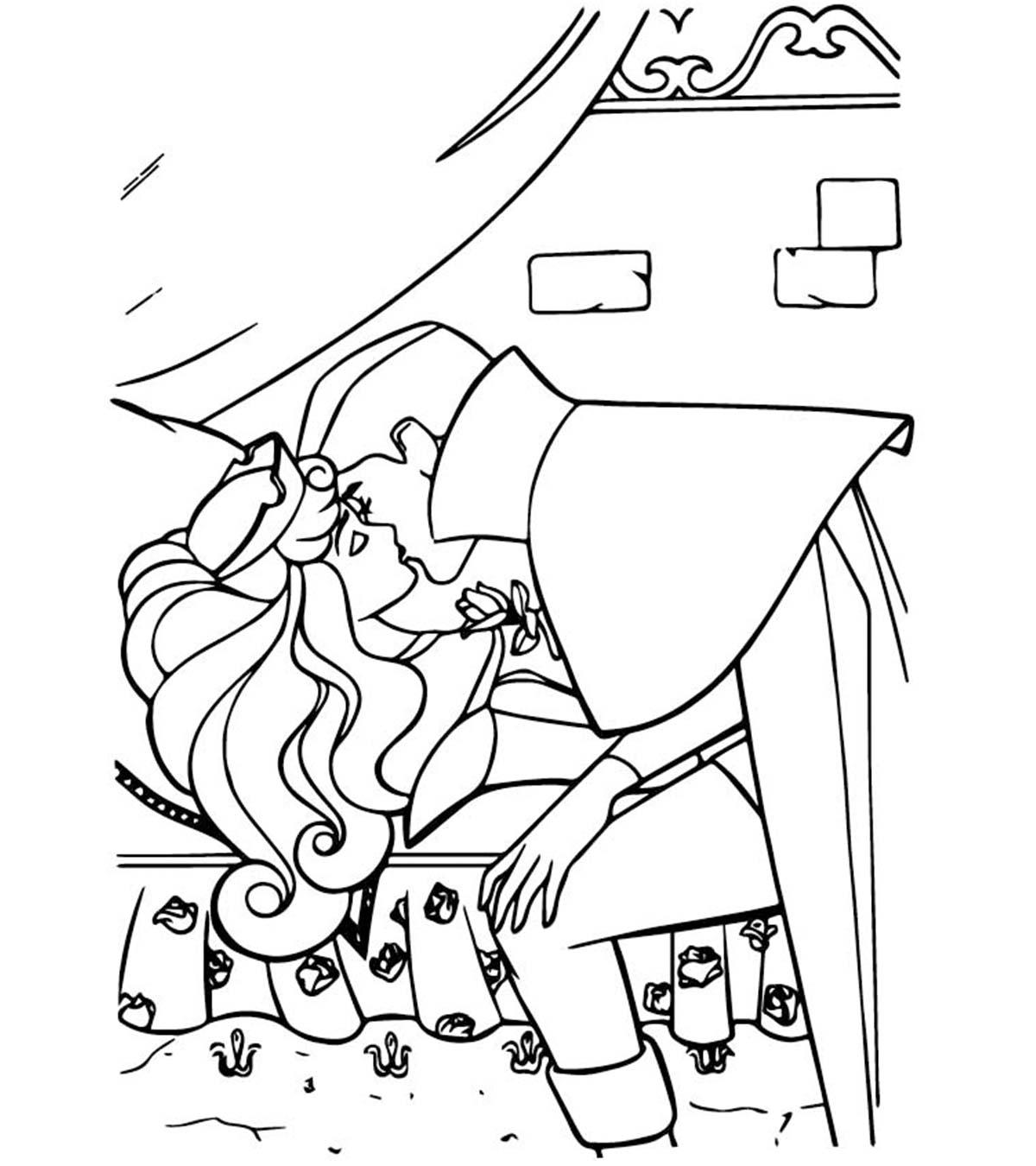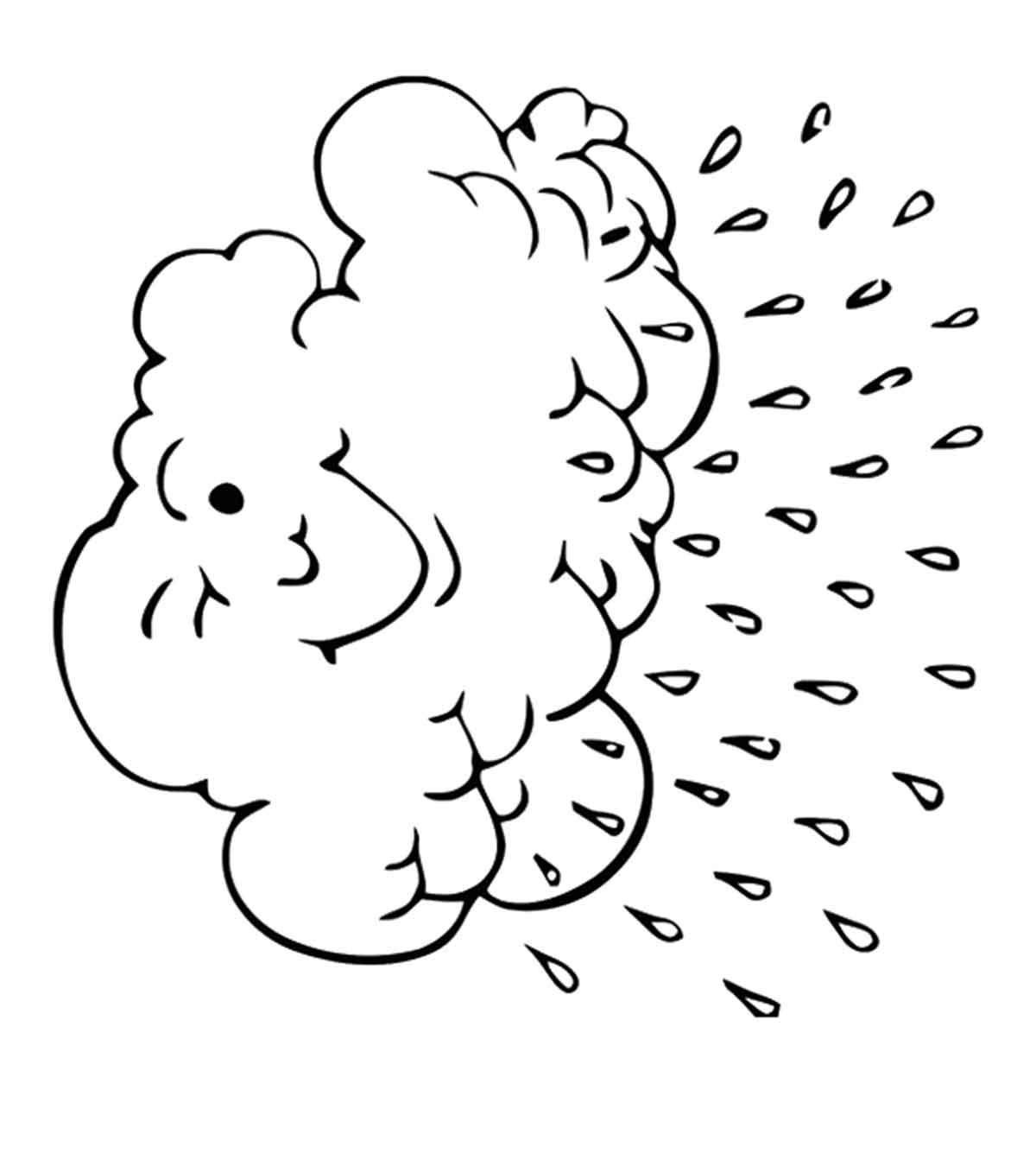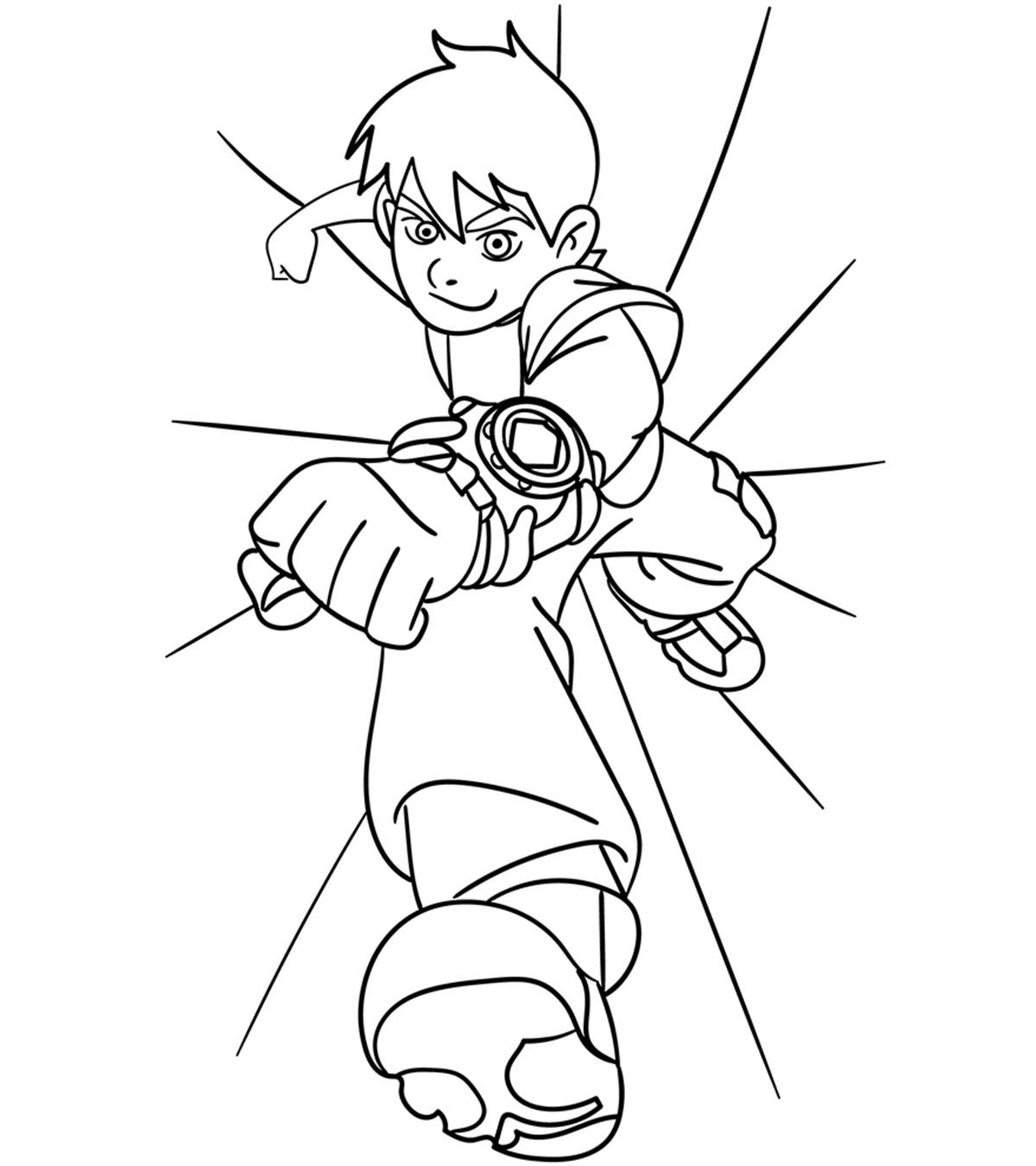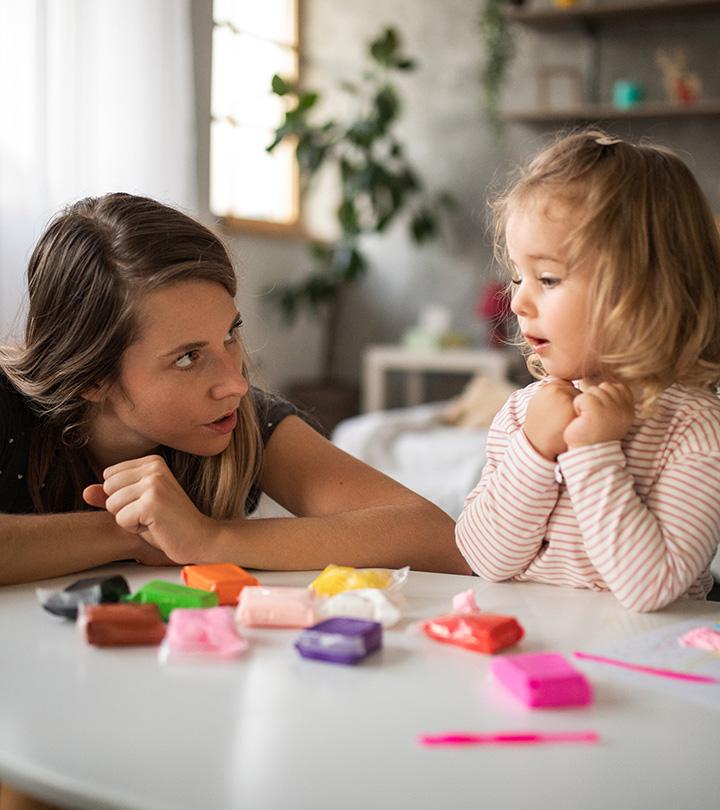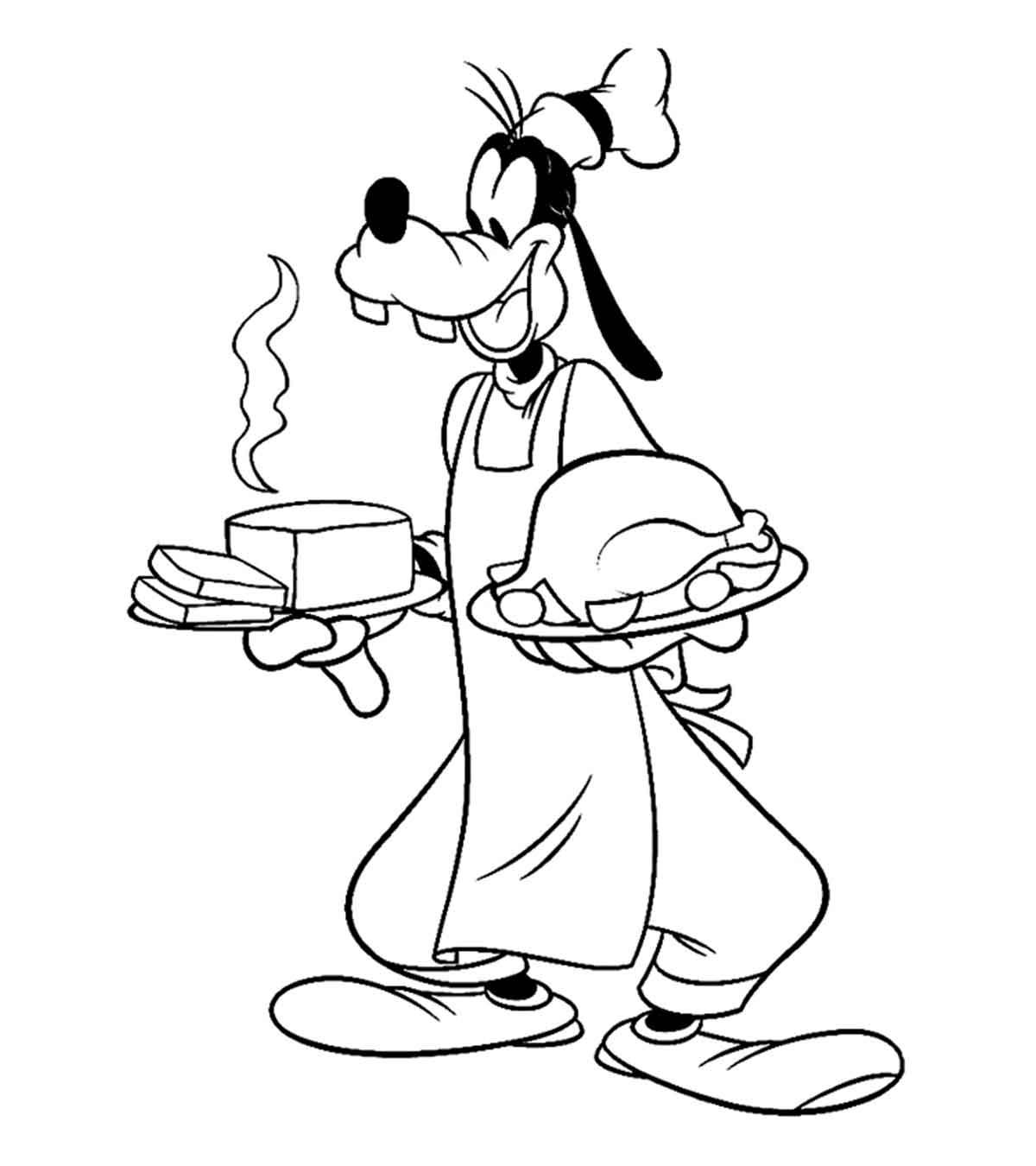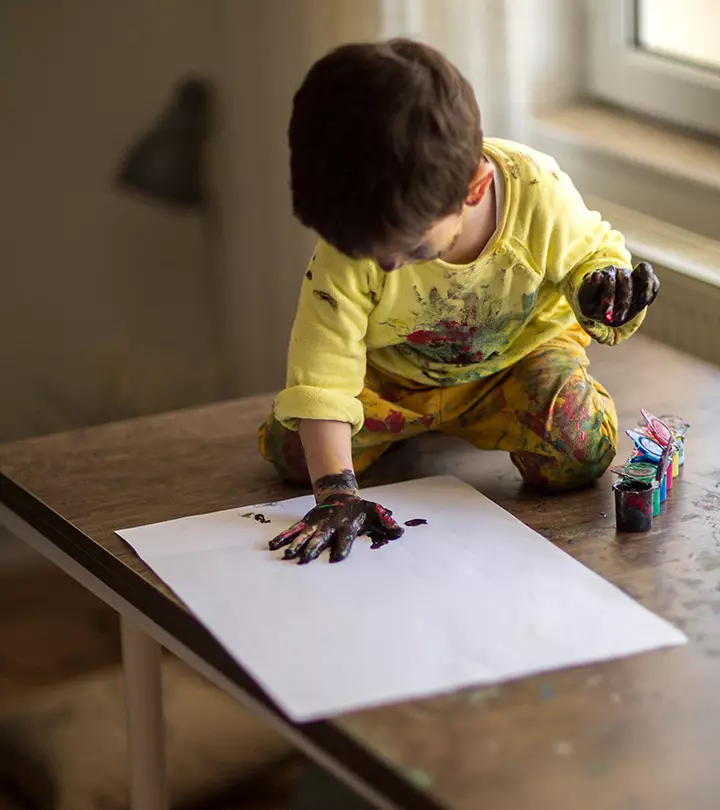
Image: iStock
Toddlers tend to use their hands to explore the world and for activities. Painting is no exception. Finger painting for toddlers is a messy but fun alternative to engage your child in sensory play. Children are tactile learners, and this corporeal experience acts as an excellent stimulant for their physical and mental growth (1).
In this post, we share the benefits of finger painting for toddlers. We have also listed a curation of some of the best finger-painting ideas that can help you have a good time with your toddler.
Benefits of Finger Painting for Toddlers
Finger painting involves using fingers to paint, and this tactile experience stimulates your child’s senses. Drawing or painting in general encourages cognitive development and strengthens their hands and fingers whilst improving fine motor skills (2).
The craft of finger painting is a sensory play activity that also allows your toddler to touch and feel different types of textures and materials, which can be emotionally soothing. Mixing two or more colors from the paint palette helps your child’s intellectual development, imaginative play, and creativity (3).
Finger painting can free you from the mess of crayons and markers lying around and sticky fingers of glue. If you have been keeping your toddler from participating in finger painting as you fear they would make a mess, we have got you covered. Here are some handy tips and lots of finger-painting ideas for toddlers.
15 Easy Finger-Painting Ideas For Toddlers
Finger painting is done using fingers without paint brushes, but you may also add a few creative twists to it. Check out these easy finger-painting ideas for your toddler!
1. Get a variety of different objects to use as painting tools
Image: IStock
Although finger painting is done using fingers, your toddler may love using other objects at home such as brushes, rollers, spoons, forks, sponges, earbuds, wool, or even cotton wool balls. Not only is this visually stimulating but also allows your child to learn about shapes, objects, and textures.
Cynthia, a mother of four and blogger, recounts how she engaged her little boys in a mess-free painting session. She says, “I first saw the idea on Pinterest… I used tempera paint, making this a great colour-mixing experiment at the same time.
“I squirted two primary colours into each of the three Ziplock freezer bags, put a white piece of paper under them, and taped the whole thing down with painter’s tape…. They (children) first experimented with each bag to see what new colour was made when mixing the two primary colours together. Then they drew pictures, made handprints, and drove their cars over the paint to see the tire tracks. Turns out cars aren’t exactly gentle on the bags. After a couple quick repairs with masking tape, the cars were parked for the rest of the activity (i).”
 Quick tip
Quick tip2. Use cardboard shapes
Image: Shutterstock
Help your toddler with finger painting by cutting cardboard pieces in a variety of shapes. For example, create a triangular border on cardboard and teach your child to dab into paint and drag it on the canvas. It will create a wonderful zig-zag border. You can try different shapes and patterns. So, get your scissors and make numerous cardboard stencils with your little one!
3. Use a rolling pin
Image: IStock
Have an old rolling pin lying around your house? It can be a great tool for your toddler’s finger-painting sessions. Put elastic bands on the rolling pin. Watch your toddler amazed at the patterns that emerge when they dip the rolling pin in paint and roll it on paper.
4. Use the wheels of your toddler’s old toy car
Image: IStock
A home with a toddler is sure to have multiple toys, including old cars with broken wheels. These wheels are a great tool for finger painting. Your toddler can dip these broken wheels in paint and create beautiful patterns on paper.
5. Use fruits and vegetables
Image: IStock
Finger painting is incomplete without using vegetables! Did you know that vegetables create different patterns when dipped in paint or watercolors? This is also a good opportunity for your toddler to learn about vegetables and their textures.
 Do remember
Do remember6. Use shaving foam
Image: IStock
Did you know that adding paint to shaving foam is a creative and fun way for toddler finger painting? All you need to do is spray some shaving foam on a canvas and encourage them to mix colors to paint with their fingers to create interesting foam shapes.
7. Use printed templates
Image: Shutterstock
There are plenty of ready-to-print templates available on the Internet. Get a few of them printed and teach your toddler to paint on them using their fingers. This is a good opportunity to teach them the names of different colors, objects, etc.
8. Use DIY gel paint
Image: IStock
To give your toddler a different texture of paints to play with, make a quick gel paint by mixing hair gel, and natural food coloring. Let your toddler create some glossy finger-painting pieces with this new paint!
9. Use different-textured paints such as glitter, sand, and sequins
Image: IStock
To give your toddler an idea about different textures, add some sand or glitter to their paint and let them get creative!
10. Paint on different materials and surfaces
Image: Shutterstock
While a construction paper is the easiest surface to paint on, give your toddler options of cloth such as aprons, aluminum, tin foil, leaves, or bubble wrap to try finger painting. Apart from textures, painting on different surfaces helps in their overall cognitive development.
11. Decorate cardboard boxes
Image: Shutterstock
Have cardboard boxes lying around? They are a great prop to give your toddler for finger painting. Painting cardboard boxes allows your child to get creative.
12. Stone finger painting
Image: Shutterstock
If your toddler seems to be losing interest in finger painting, bring in a few rounded stones. Stone painting is fun and exciting. Your toddler can create some masterpieces that can be preserved for later.
13. Use frozen paint cubes
Image: Shutterstock
To increase sensory play for your toddler, frozen paint cubes are a great idea. All you need to do is mix a little bit of paint with water, add them to an ice tray and freeze! Once frozen, let your toddler play with different colored ice cubes. The experience of painting with ice cubes is unique and may also aid their cognitive development. Parents need to exercise caution with this activity as ice cubes are cold. Therefore, cubes can be pushed on sticks to make it safe for your little one.
14. Use pre-formed stamps with finger paint
Image: Shutterstock
Finger painting can get boring without tools and accessories. You can pick a few stamps of different shapes that your toddler can dip in paint and create designs and patterns. This is fun and a great learning experience for your toddler.
15. Use a straw
Image: Shutterstock
Here is another way to get creative with finger painting. Dilute some paint with water to make it flowy. Teach your toddler to add a few drops of paint on paper and blow it into different patterns using a straw.
Tips For Finger Painting With Your Toddler
To enjoy finger painting with your toddler and not interrupt their play, here are a few tips that you can use!
- Secure the child in a chair. This will keep their movement and the mess they create restricted to one place.
- Use an old shower curtain below your toddler’s chair to prevent paint from spilling on the floor or carpet.
- Keep dry and wet wipes handy. Once your toddler is done with painting, use these wipes to clean them after they are done painting.
- Stick the paper they are painting on a table to prevent it from moving. It may be a good idea to spread an old cloth to prevent the table from getting messy during your toddler’s painting activity.
- Dress your child in old pajamas or old clothes. This way you don’t have to worry about them spoiling their clothes while they are at their creative best.
- Give your toddler some control while painting. Toddlers are just discovering their independence, and that will go a long way in their development.
- Keep extra paper, paints, tools, or any other equipment handy so that you won’t have to leave your toddler unattended any time during the activity.
- Use non-toxic paint: It is vital to use paint labeled as non-toxic, washable, and safe for young children. Also, make sure that the child does not ingest them. It is best to use edible paints, such as those made at home using fruit and vegetable purees, for young toddlers who tend to explore new things with their mouths.
Frequently Asked Questions
1. What age is appropriate for finger painting?
There is no specific age to begin finger painting, and you may try it anytime from the age of nine months when babies have better dexterity of fingers (4).
2. Can babies eat finger paint?
No. Finger paints are not edible, and even those marked as toddler-safe or non-toxic should not be eaten since they may contain harmful chemicals. If your baby or toddler is prone to eating finger paints, you may use different fruit and vegetable purees as finger paints. These would be safe to ingest.
3. Is finger paint non-toxic for toddlers?
Finger paints marked as non-toxic are safe for children. However, they are still not edible, and contact with the eyes should be avoided.
4. What does finger painting do for toddlers?
Finger painting can help toddlers exercise their fine motor skills since it involves precise movements with fingers. Other benefits include stimulation of creativity and expression of emotions (5).
5. How do I encourage my toddler to do finger painting?
A few ways to encourage your toddler to finger-paint are by letting them choose colors, singing a fun song while painting, joining them during the activity, and trying painting different textures or designs.
Sometimes it is okay to let your children be messy. It is a part of growing up and makes for a carefree, fun time. So finger paint for toddlers is one of the creative ways to do that. It will help them create tiny masterpieces and aid in their sensory and motor development. And ensure that you use non-toxic and edible paints for safety. Engage them in these activities to bring out the child’s imagination and creativity.
Infographic: Notable Points About Teaching Finger Painting To Toddlers
Art and crafts are the most creative and fun ways to help toddlers develop various skills and promote learning. However, toddlers have a short attention span and can be difficult to be dealt with. The infographic below presents valuable tips to help you teach finger painting to your little one.
Illustration: Momjunction Design Team
Key Pointers
- Finger painting is a sensory play activity that promotes intellectual development, imaginative play, and creativity in your toddler.
- Finger painting can be done using veggies and fruits, DIY gel paint, frozen paint cubes, among other objects.
- Painting on different surfaces and textures would help in a toddler’s cognitive growth.
- Ensure you strap your child to the chair, their hands are dry, and keep extra paper, paints and wipes handy.
Image: Stable Diffusion/MomJunction Design Team
Let your kids explore their creativity with this fun finger painting activity! Learn how to make your own finger paints and create beautiful art with your kids.
Personal Experience: Source
MomJunction articles include first-hand experiences to provide you with better insights through real-life narratives. Here are the sources of personal accounts referenced in this article.
i. Mess-free finger painting.http://hippiehousewife.blogspot.com/2012/01/mess-free-finger-painting.html
References
- What is Tactile Learning?
https://www.wgu.edu/blog/what-tactile-learning2008.html#closex - The art of creating: Why art is important for early childhood development.
https://www.canr.msu.edu/news/the_art_of_creating_why_art_is_important_for_early_childhood_development - Finger Painting.
https://www.allowah.org.au/2018/06/28/finger-painting/
- Milestone moments.
https://www.cdc.gov/ncbddd/actearly/pdf/parents_pdfs/milestonemomentseng508.pdf - Finger painting: activity for children 1-3 years.
https://raisingchildren.net.au/guides/activity-guides/making-and-building/finger-painting-1-3-years
Read full bio of Erin DeCarlo
Read full bio of Rohit Garoo
Read full bio of Vibha Navarathna





